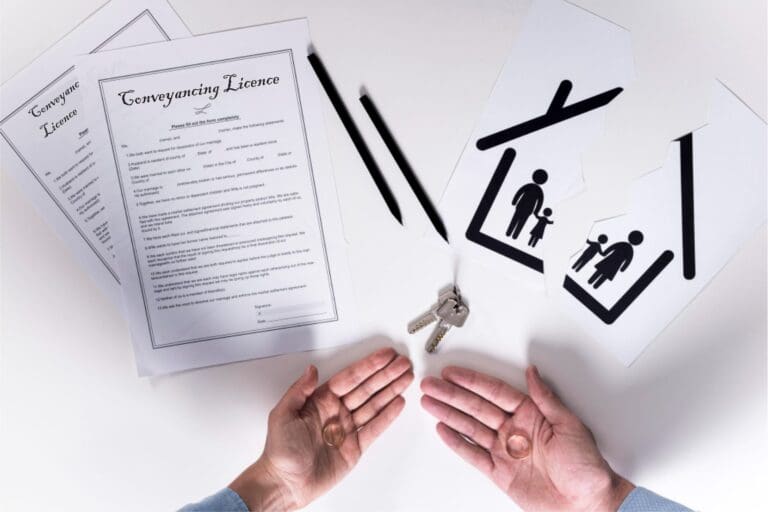Buying a house is overwhelming, with all the legal and financial stuff to think about. One important step in your home-buying adventure is getting a conveyance. Let’s chat about what a conveyancer does, when you should bring them into the picture, tips for finding a trustworthy pro, how much it’s gonna cost you, and all the perks that come with having a conveyancer by your side.
Why Do You Need a Conveyancer When Buying a House?
When you’re in the midst of buying a home, having a conveyancer right there with you is key. They’re like your legal sidekick, making sure everything runs like a well-oiled machine and that every part of the real estate deal is handled with finesse.
What Are the Responsibilities of a Conveyancer?
When buying a property, you rely on your conveyancer to handle a bunch of key tasks. They’ll do things like digging into title searches, looking over contracts, getting all the legal docs ready, and giving you legal advice. Basically, they’re the ones who make sure everything goes smoothly for you during the property transfer and settlement.
1. Conducting Property Searches
When you’re working as a conveyancer, one of your main tasks is to conduct property searches. This means you need to dig deep into title searches and look out for any legal issues that could throw a wrench in the property purchase process.

Look into title searches and be sure that the property’s ownership history is crystal clear and free from any encumbrances. This step is super important because it helps uncover any potential legal disputes or unresolved claims that could really mess up the whole transaction.
Reviewing legal documents like contracts and deeds is all about checking for accuracy and spotting any inconsistencies that could cause trouble down the line. Finding and dealing with issues early on lets you take the right steps to lower risks and protect the interests of both the buyer and seller in the property deal.
2. Preparing Legal Documents
When you’re a conveyancer, preparing legal documents becomes a crucial part of your job. You’ve got to draft and review the purchase agreement, making sure everything follows property law and helps with transferring the deed.
That purchase agreement is like the roadmap for the property transaction, laying out all the terms and conditions. It covers important stuff like the purchase price, deposit amount, and any backup plans in case things change. As the conveyancer, you’ve got to really dig into the deed, the document that officially hands the property over from one person to another.
Keeping all the paperwork in line with property laws is a must to avoid any messy legal battles and make sure the property transfer goes off without a hitch.
3. Handling Financial Transactions
When handling financial transactions, you need to take charge as a conveyancer. This involves managing the deposit payment, calculating closing costs, and making sure funds are moved correctly during the settlement process.
As you navigate through the property transaction process, your role as a conveyancer is vital in working with financial institutions to make sure money transfers go off without a hitch. It’s up to you to see that the buyer’s deposit is kept safe in a trust account until settlement. Your accurate calculations of all closing costs, like stamp duties, legal fees, and other charges, prevent payment mix-ups and guarantee both parties are on the same page about their financial responsibilities throughout the transaction.
When Should You Engage a Conveyancer?
Making sure you bring a conveyancer into the picture at the right times in your home purchase is key. They’ll help make sure everything goes smoothly, giving you legal advice and helping out with negotiating contracts at every step of the home-buying journey.

1. Before Making an Offer on a Property
Before you make an offer on a property, it’s a good idea to get a reliable conveyancer on board. They offer legal advice and look over the initial terms of the home purchase agreement for you.
A conveyancer’s knowledge of property law comes in handy as you steer the twists and turns of buying a home. When you hire a good conveyancer before you step into property transactions and negotiations, you will get a heads-up on any legal pitfalls that might crop up, making sure your interests are well-protected.
Conveyancers will assist you make sense of all the fine print in the agreement, like deadlines, conditions, and any sneaky clauses that could throw a wrench in your plans. A thorough examination will save you from headaches down the line and give you the confidence to make smart choices before sealing the deal.
2. During the Cooling-Off Period
During the cooling-off period, your conveyancer plays a crucial role in giving you legal advice and carefully reviewing the contract to make sure your rights as a homebuyer are safeguarded.
The cooling-off phase is super important because it lets you have a pro look over all the nitty-gritty details of the property deal, confirming everything is above board and there are no sneaky clauses in the contract. Your conveyancer’s expertise allows them to spot any terms that could be bad news for you and negotiate changes with the seller if needed.
3. Before Finalizing the Sale
Before finalizing your sale, it’s crucial for you to engage a conveyancer to make sure all your legal documents are in order, the property transfer is done right, and the settlement meets all the legal requirements.
Conveyancers really come in clutch during the property buying process. They carefully go through all the legal paperwork, like contracts and titles, to catch any red flags that could mess with the deal. Plus, they work with everyone involved, like lawyers, real estate agents, and banks, to keep the ownership transfer smooth sailing.
How to Find a Reliable Conveyancer?
You need to find a reliable conveyancer for a successful property transaction. They will give you expert legal representation and assist you as a homebuyer throughout the conveyancing services process.
1. Ask for Recommendations
When you’re on the hunt for a reliable conveyancer who’s got your back in the home-buying process, don’t hesitate to reach out to your friends, family, or real estate agents for some solid recommendations.
Getting those personal referrals is like striking gold because you get real stories and insights into how a conveyancer handles their business. Your trusted sources will give you the inside scoop on stuff like how they communicate, pay attention to details, and navigate the legal stuff like a pro. With trusted recommendations in your back pocket, you will confidently pick a conveyancer who’s already proven their worth and professionalism through successful deals and positive experiences.
2. Research Online
When you’re on the hunt for a trustworthy conveyancer online, start by checking out reviews, comparing services, and making sure they’ve got a solid history of handling property transactions.

Take a few moments to check customer reviews. They’re like gold mines of info on how others have fared with a specific conveyancer. Look out for feedback on communication, professionalism, and overall satisfaction.
Next, do some side-by-side comparisons of what different conveyancers offer. Find the ones that match up best with what you’re looking for. Don’t forget to check out the experience levels of the conveyancers you’re eyeing. A proven track record in property transactions shows they’ve got the skills and reliability you need.
3. Check for Accreditation and Experience
Accreditation and experience guarantee that the conveyancer is qualified and has a proven track record of providing competent legal representation. Accreditation acts as a stamp of approval, indicating that the conveyancer has met specific educational and professional standards. It demonstrates their dedication to upholding ethical practices and staying up-to-date on industry regulations.
On the other hand, experience brings practical knowledge and the ability to navigate complex property transactions smoothly. Opt for a conveyancer who has both accreditation and experience to rest assured that your property matters are in capable hands.
What Are the Costs of Engaging a Conveyancer?
You need to get a handle on the costs of hiring a conveyancer so you smartly budget for your property purchase. Expenses usually cover things like
- professional fees,
- search fees,
- disbursement fees,
- other legal fees linked to the conveyancing process.
1. Professional Fees
When you hire a conveyancer, you’ll be met with professional fees that account for their knowledge and services throughout your property transaction. These fees are a big chunk of your overall legal expenses.
Your conveyancer’s professional fees cover a range of tasks like title searches, document preparation, settlement coordination, and legal counsel. Their expertise shines through in their grasp of property laws, guaranteeing a seamless and legally solid property deal for you. The cost of professional fees depends on factors such as the property’s complexity, the time and energy invested, and the conveyancer’s experience and reputation in the field.
2. Search Fees
Regarding property transactions, you’ll find that search fees are there to foot the bill for all sorts of searches, like title searches and checks for legal snags. These searches are key parts of the conveyancing process.
Title searches are a big deal because they give you the lowdown on a property’s ownership history, pointing out any liens or encumbrances that could mess with its market value. Zoning regulation and building permit searches, on the other hand, help spot any limitations on property use or potential problems with any renovations you might have in mind.
Do not forget environmental searches, important for uncovering any contamination risks or hazardous materials hanging around the property, and making sure everything’s up to code.
3. Disbursement Fees
When you’re working with a conveyancer, you’ll come across disbursement fees. These are extra costs that your conveyancer covers for you, like fees for legal documents, property registration, and other necessary expenses during the conveyancing process.
These fees play a crucial role in making sure all the important paperwork and registration processes run smoothly. For instance, disbursement fees might take care of expenses tied to property searches, land registry fees, and stamp duty. If these fees weren’t covered, you’d have to handle them on your own, making the conveyancing process more complicated and potentially causing delays.
What Are the Benefits of Hiring a Conveyancer?
When you hire a conveyancer, you get a whole bunch of perks. You can tap into their knowledge and experience, beef up your legal protection, and save a ton of time and stress as you navigate through the property transaction journey.

1. Expertise and Experience
When you’re dealing with a property transaction, having a conveyancer by your side is like having a secret weapon. Their expertise and experience are key to handling all the legal ins and outs of the process smoothly.
With their deep knowledge of property law, conveyancers give you spot-on advice and make sure all your documents are up to snuff with the law. And if any unexpected legal hiccups pop up, they’ve got the skills to handle them like a pro, keeping things running smoothly and avoiding any unnecessary delays. Good and experienced conveyancers see potential issues coming from a mile away and tackle them head-on, making sure your property transaction goes off without a hitch.
2. Legal Protection
When you hire a conveyancer, you’re getting someone to handle your property transaction. You’re also getting legal protection. They make sure everything aligns with the laws and rules, keeping your best interests covered every step of the way.
Their know-how means they will dig deep into searches to uncover any potential legal hiccups with the property, like boundary disputes or lingering debts. Conveyancers are all about getting the paperwork right the first time, which saves you from costly delays or headaches down the road. With expertise in contracts and negotiations, they’re like the unsung heroes of a smooth and secure property deal. And that means you can relax, knowing your investment is legally shielded.
3. Time and Stress Savings
When you hire a conveyancer, you’re essentially freeing up your time and reducing your stress levels. They take care of all the complicated legal and administrative tasks that come with a property transaction, allowing you to focus on other important aspects of your move.
Your conveyancer is like your paperwork superhero, handling all the necessary documents for the property transfer accurately and on time. They’re the ones who keep everything running smoothly by being the main point of contact between different parties like real estate agents, lenders, and lawyers. A professional oversight simplifies the process and gives you peace of mind, knowing that an expert is carefully overseeing every detail of the transaction.
Frequently Asked Questions
1. When should I engage a conveyancer when buying a house?
It is recommended to engage a conveyancer as early in the home buying process as possible. This will give them enough time to review contracts and negotiate terms on your behalf.
2. Can I engage a conveyancer after I have made an offer on a house?
Yes, you can engage a conveyancer at any point in the home-buying process. However, it is best to engage one before making an offer to confirm all legal aspects of the purchase are taken care of.
3. What are the benefits of engaging a conveyancer?
A conveyancer is a trained legal professional who specializes in property law. They will confirm all legal aspects of the property purchase are taken care of, saving you time, money, and potential legal issues in the future.
4. How much does it cost to engage a conveyancer?
The cost of engaging a conveyancer varies depending on the complexity of the property purchase and the services offered by the conveyancer. It is best to get a quote from a few conveyancers before making a decision.
5. What services does a conveyancer provide when buying a house?
A conveyancer will review and explain the terms of the contract, conduct title searches, check for any outstanding debts or restrictions on the property, prepare legal documents, and handle the transfer of ownership.
6. Can I engage a conveyancer if I am buying a house at auction?
Yes, you can engage a conveyancer if you are buying a house at auction. It is important to have a conveyancer review the contract and provide advice before the auction, as there is no cooling-off period for auction purchases.
Get your quote today.
Relax knowing our experts are handling your property conveyancing.









